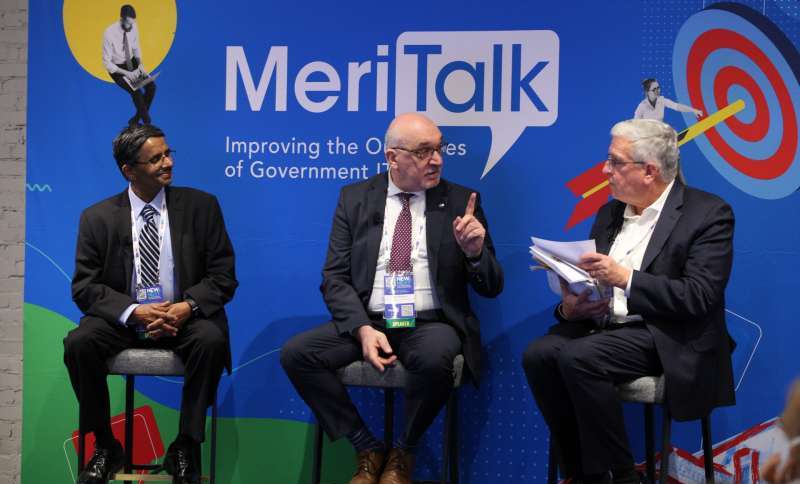
The Federal government continues to invest heavily in quantum computing research to ensure the United States becomes the global innovation leader in this emerging discipline, however, the technology for applications is still largely unavailable as quantum research remains in the early stages, according to Federal quantum experts.
Nasser Barghouty, chief scientist and quantum science and technology lead at the National Aeronautics and Space Administration (NASA), explained that quantum science – depending on possible applications – is still in its infancy stage, and it will still be a few years before it’s widely adopted across government.
“Quantum computing is still awaiting its big scientific breakthrough,” Barghouty said on Dec. 8 at MeriTalk’s “New & Next: The Government Tech Renaissance” event in Washington, D.C.
Pradeep Fulay, program director for the Technology, Innovation, and Partnerships Directorate at National Science Foundation, agreed with Barghouty, adding that the Federal government should be wary of underestimating or overestimating quantum computing technology and capabilities.
“We’ve seen it time and time again when there’s a new technology or capability like quantum we tend to overestimate the effect of those technologies in the short term. And we underestimate the potential in the long term. I think that is something for us to keep in mind as we continue to move forward,” Fulay said.
Fulay explained one challenge he predicts will come about when quantum computing capabilities hit the scene, and that’s finding a way to integrate scalable quantum computers.
While quantum computing remains in its infancy stage in the United States, the nation is still in a race with other countries – China among them – to get to quantum first and better. Barghouty believes that the U.S.’s more holistic approach will help to win that race.
“The government is not looking at quantum as it if were some shiny new gadgets it has to acquire and rapidly infuse into its network,” he said. “The United States government is taking a holistic approach to implementing quantum computing, which I think is an extremely wonderful thing.”
Through this holistic approach, the government won’t have to worry about catching up with the quantum advancements of different countries because in a couple of generations, “we will have quantum in everything,” Barghouty explained.
